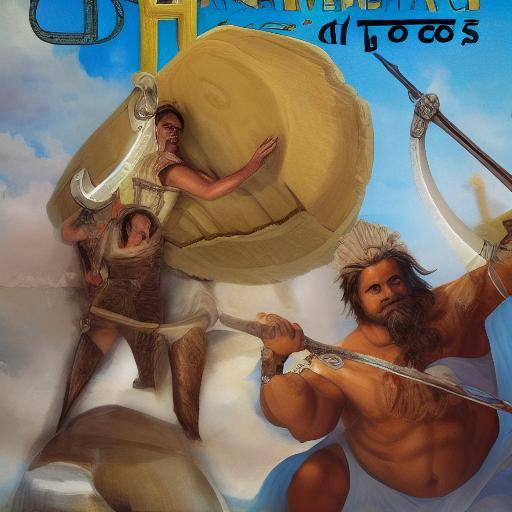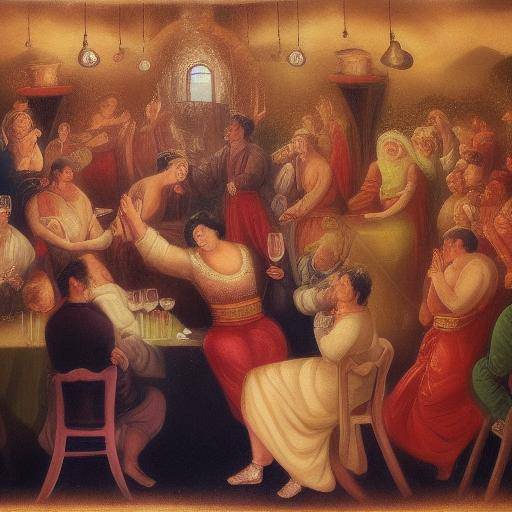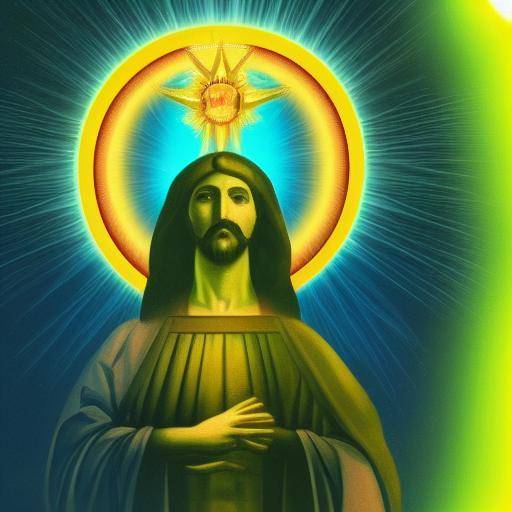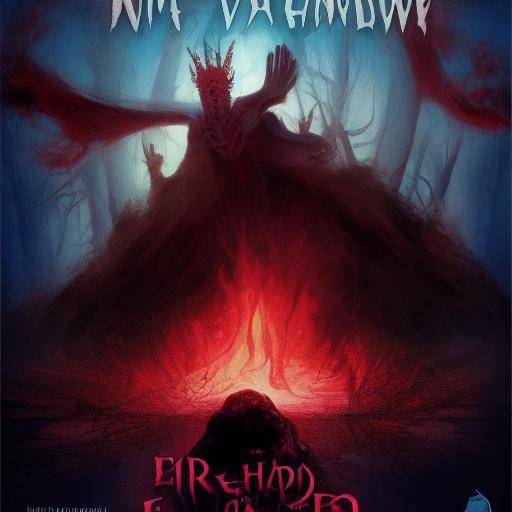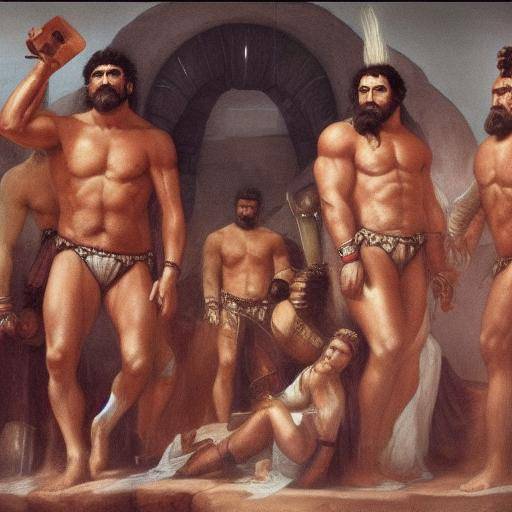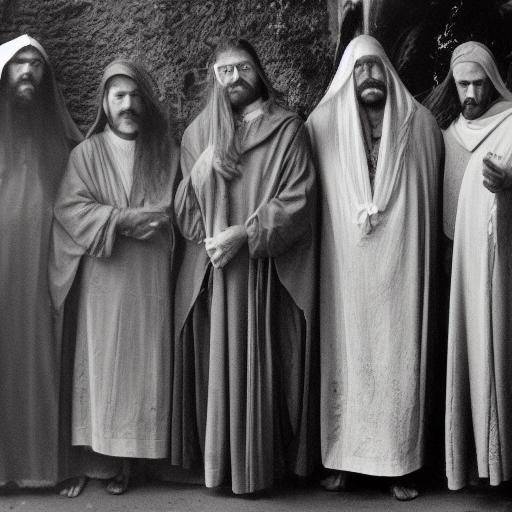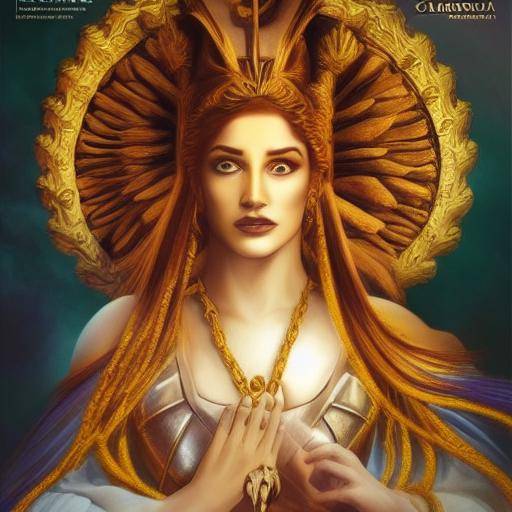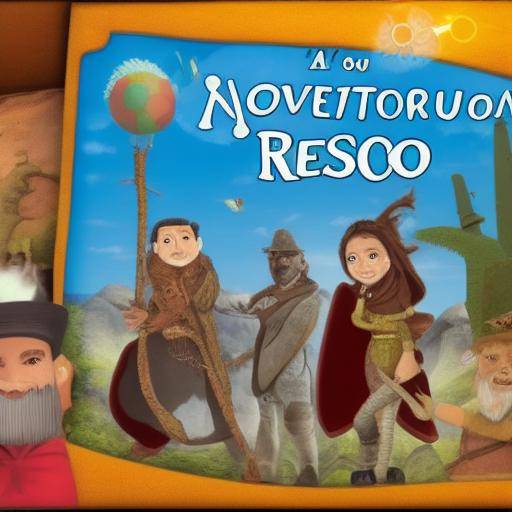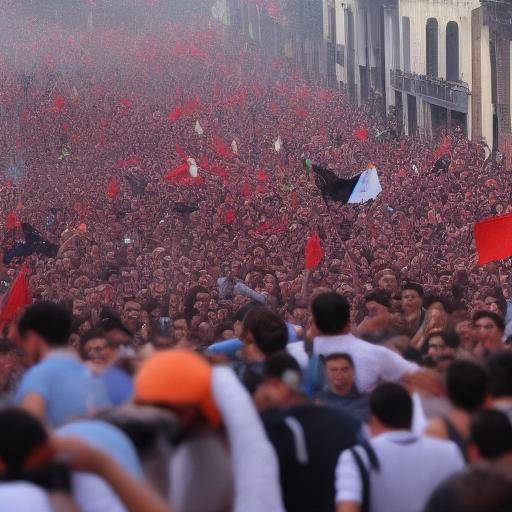
The myth of Prometheus and theft of fire is one of the most emblematic stories of Greek mythology. Prometheus' rebellion against the Olympic gods to give the gift of fire to humans not only triggered a series of significant events, but also led to intriguing punishments and consequences. In this article, we will explore in depth the history of Prometheus, his rebellion against the gods, the context of the Greek myths, and the punishments he suffered, all while analyzing his relevance in culture and literature. Let us learn about this legendary story and its implications in ancient Greek society and beyond.
Introduction
The Myth of Prometheus: An Act of Transcendental Rebellion
Prometheus myth is a story that transcends time and space, and has left an indelible mark on Western culture. The story of Prometheus, a Greek titan, defies the same gods and dares to steal the fire of Mount Olympus to give it to mortals, symbolizes the struggle for freedom, innovation and knowledge. This action, though noble in its intention, triggers a series of events that provoke divine anger, and eventually lead to cosmic consequences and unbreakable punishments.
In this article, we will unravel the layers of this transcendental myth, which addresses fundamental questions about rebellion, the consequences of our actions and divine punishment. We will explore in depth the history of Prometheus and his mythical rebellion, as well as his eternal punishment. Let us enter a journey through the ancient folklore that still resonates in contemporary society.
History and Context
Origins and Meaning in Greek Mythology
Prometheus myth originates in Greek mythology, a rich oral tradition that has endured for millennia. It goes back to a time when humanity tried to understand its place in the world through mythical narratives that personified abstract concepts. Prometheus, a titan associated with wisdom and cunning, plays a central role in this narrative as a catalyst for change and rebellion against the Olympic gods. The legend of theft of fire not only symbolizes the courage to defy divine authority, but also the transmission of knowledge and civilization to mortals.
Historical Evolution and Relevance
Over the centuries, Prometheus' myth has maintained its relevance in Western culture, deeply affecting literature, art and philosophical thought. From the Greek tragedies to the reflections of the philosophers of the Enlightenment, the story of Prometheus has been continually reinterpreted to reflect the values and anxieties of each time. Even today, his figure is used as a symbol of the struggle for freedom and the right to challenge the status quo.
Significant Developments and Reflection Points
Throughout history, the figure of Prometheus has been reinterpreted in different literary works, from the ancient Greek tragedy "Prometheus chained" to the reflections of modern authors. These reinterpretations explore the moral and ethical complexity of his rebellion, as well as the consequences for him and for humanity. In addition, in the philosophical sphere, the myth of Prometheus has led to debates on the nature of the rebellion and the role of the individual in society.
Analysis in Deep
Benefits and Challenges of Rebellion
Prometheus' rebellion against the Olympic gods raises questions about the limits of divine authority, as well as the role of rebellion in promoting progress and freedom. Although his act challenged divine laws, he also unleashed a series of benefits for humanity, such as the gift of fire, technology and knowledge. However, these actions triggered anger and punishment by the gods, which leads to reflect on the risks and challenges inherent in challenging the established order.
Perspectives and Diverse Reviews
Prometheus myth has been the subject of diverse interpretations over time. From the vision of Prometheus as an defending hero of humanity to the perception of his rebellion as a threat to cosmic order, the different perspectives reveal the moral and philosophical complexity surrounding the protagonist of this legend. Unraveling these perspectives offers a complete view of the nature of rebellion and its ethical and moral implications.
Exploration of Complex Concepts
The story of Prometheus and his rebellion is not only an epic account, but also a crucible of complex concepts ranging from individual freedom to moral responsibility. In analyzing these ideas, we can appreciate the intellectual and philosophical wealth contained in this myth and its ability to generate deep reflections on the human condition.
Comprehensive review
Applications, Case Studies and Best Practices
The myth of Prometheus and his rebellion provide a platform for studying the dynamics of rebellion and its implications in human society. In analyzing historical and contemporary cases of rebellions, we can establish parallels and draw lessons applicable to different contexts, from politics to technology.
Opinions of Experts and Futures
Prometheus rebellion and its eternal punishment have generated continuous debates between thinkers, philosophers and experts in mythology and literature. By bringing together their opinions and analysis, we can gain valuable insights into the current and future relevance of this myth and its impact on the understanding of human nature and the dynamics of power.
Comparative analysis
By comparing the history of Prometheus with other Greek myths and historical rebellions, we can identify patterns, differences and similarities that shed light on the universal aspects of rebellion and its multiple cultural nuances. This comparative analysis expands our understanding of rebellion as a social and symbolic phenomenon.
Conclusion
Final Reflection: Perennial Legacy of Prometheus
Prometheus myth and theft of fire remain an inexhaustible source of reflection and debate, as it contains fundamental questions about rebellion and its eternal consequences. His figure challenges the established order and encourages us to reflect on the limits of knowledge and freedom. Moreover, their eternal punishment is a reminder of the inescapable consequences of our actions, even when they seek the benefit of humanity.
Ultimately, the myth of Prometheus and his rebellion urges us to reflect on our own struggles for freedom and knowledge, as well as on the ethical implications of challenging the status quo. As we explore this legendary narrative, we find parallels with our own quest for autonomy and meaning in the modern world.
Frequently asked questions
What is the role of Prometheus in Greek mythology?
Prometheus plays a crucial role in Greek mythology as a titan that challenges the gods by stealing fire to give it to humans. His act triggers a series of eternal consequences and sufferings.
What are the repercussions of Prometheus rebellion?
Prometheus rebellion leads to significant consequences, such as eternal suffering and divine punishments. In addition, humanity also faces challenges and opportunities following its rebellious act.
What universal messages convey the myth of Prometheus?
The myth of Prometheus conveys universal messages about the struggle for freedom, the cost of challenging the status quo and the responsibility of our actions. In addition, it offers reflections on knowledge, technology and the relationship between mortals and gods.
How has the myth of Prometheus influenced contemporary culture and literature?
Prometheus myth has deeply influenced contemporary culture and literature, offering a powerful symbol of rebellion, innovation and the struggle for freedom. His themes have been reinterpreted in works of fiction, art and modern philosophy.
What lessons can we learn from the story of Prometheus and his rebellion?
The story of Prometheus gives us lessons on the importance of rebellion in the search for knowledge and freedom, as well as on the consequences of challenging the established order. It also invites us to reflect on the moral responsibility and ethical implications of our actions.
What are the contemporary interpretations of Prometheus myth?
At present, Prometheus myth has been reinterpreted from various perspectives, including philosophical analysis, literary studies and reflections on the role of technology and progress. These interpretations offer an updated view of the lasting relevance of Prometheus' history.
What impact does Prometheus' history have on the understanding of human nature and divine power?
The myth of Prometheus challenges our understanding of human nature and divine power by questioning the limits of knowledge, rebellion against authority and consequences of challenging the established order. Its impact extends to philosophy, theology and ethics.
In short, the myth of Prometheus and his rebellion against the Olympic gods transcends time and space, offering valuable reflections on rebellion, freedom and eternal punishment. As we explore these issues throughout history and in the contemporary context, we enter into an intellectual journey that challenges our perceptions of morality, authority and human condition.
In conclusion, this article has thoroughly explored the myth of Prometheus and its relevance in culture and history. From its origins in Greek mythology to its contemporary implications, the history of Prometheus has left an indelible mark on cultural consciousness. I hope this exploration has provided a deeper understanding and a renewed appreciation of this timeless myth.

